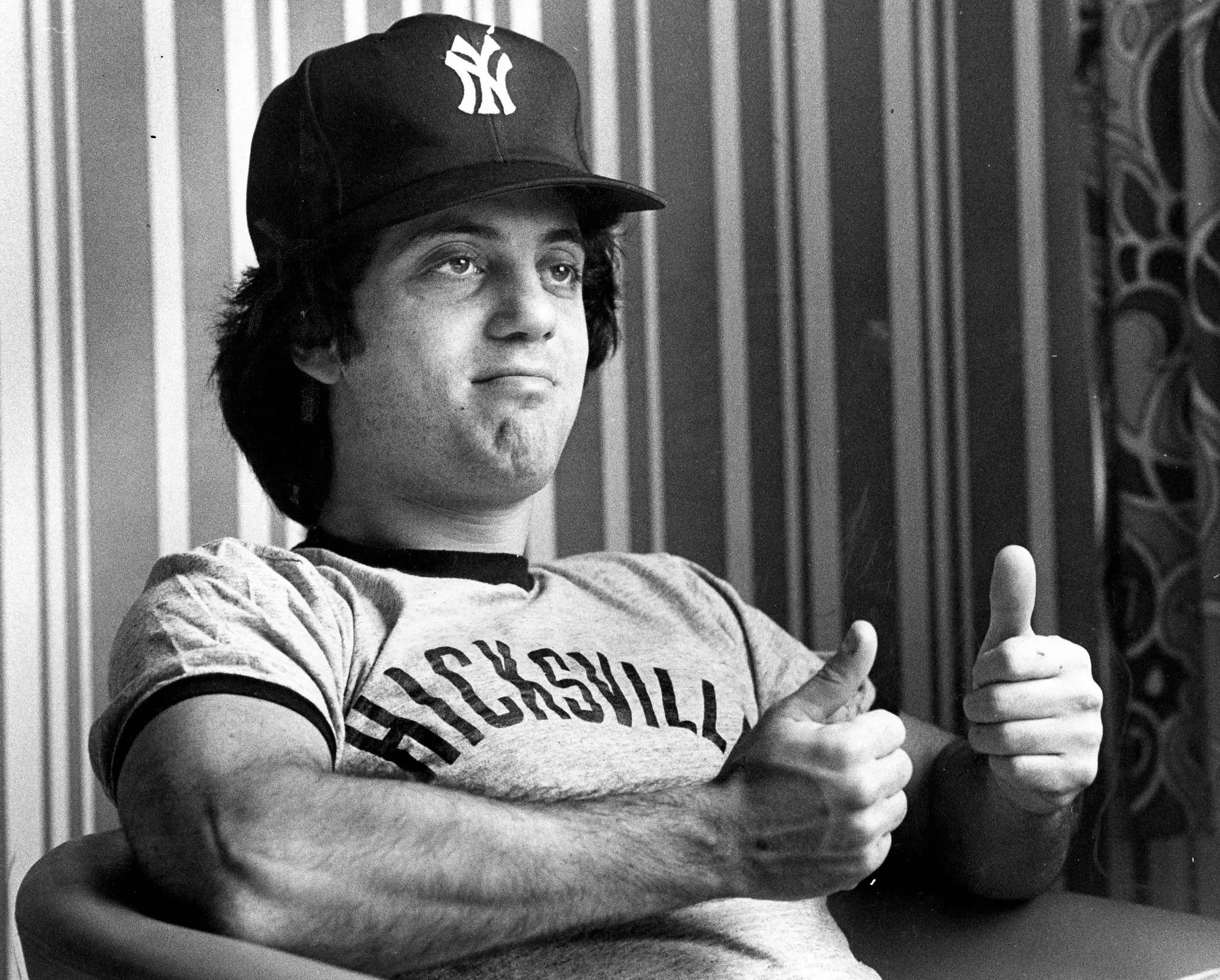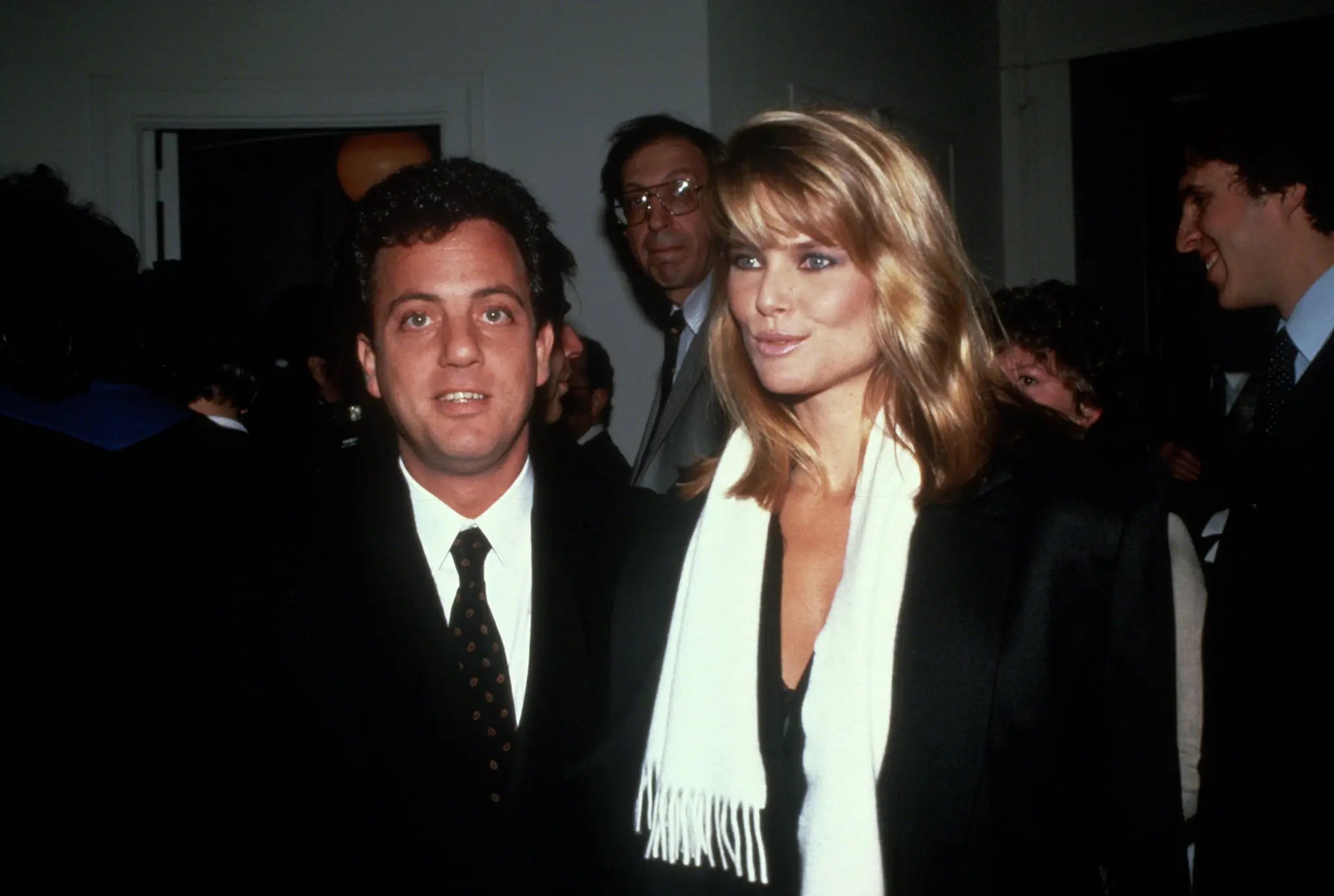I Finally Finished The Billy Joel Doc "And So It Goes" On HBO And I Have To Say, It Was Tremendous
 The Washington Post. Getty Images.
The Washington Post. Getty Images.I always respected Billy Joel. How could you not? The guy was the ultimate showman. An entertainer who could sit behind a piano, bang out "Piano Man" or "New York State of Mind", and hold an arena in the palm of his hand.
But if I’m being honest, I also kind of lumped him into the “one trick pony” category. He pumped out a few decades of monster hits, put together the greatest singalong catalog this side of Springsteen, and then spent the last 20 years touring the same setlist.
I figured he was coasting. Basically a legacy act. The kind of guy you see at Madison Square Garden because you know every word to every song, not because he’s still writing anything new or pushing the craft forward.
Then I watched Billy Joel: And So It Goes on HBO Max. And after a grueling five hours (which took me over a week to finish), I walked away with a completely different level of respect for the man. Not just as a performer, but as an artist. As a survivor. As somebody who’s been through hell and somehow managed to keep showing up.
Without spoiling it too much, here's most of my thoughts on it.
The film opens with Joel saying:
“The most original thing I’ve ever done in my life is screw up, but that’s not necessarily a bad thing. I once asked a truly great chef how he got to be so good. He said it’s all in your recovery- how you correct your mistakes. I think there’s a lot of hard won wisdom that comes with that.”
That line hit me so hard I rewound it three times. That’s the theme of the whole documentary: screwing up, recovering, and somehow turning the wreckage into something beautiful.
The first part of part one dives into his childhood. His single mom was his number one fan while he played in high school bands, and he experienced early stumbles in the business.
After his 1971 debut Cold Spring Harbor flopped, Joel found himself locked into what he later called a “real screw job” of a record deal.
The label, Family Productions, had him on the hook for ten albums while siphoning off most of his royalties. To make matters worse, the album itself had been mastered incorrectly. They fucked up and sped up his vocals so bad, he sounded like a chipmunk. Joel was so furious when he first heard it that he reportedly hurled the record across the room.
Stuck in a legal straitjacket and disillusioned with the industry, Joel packed up and left New York for Los Angeles in 1972. There, under the alias “Bill Martin,” he made ends meet as a piano player at a bar on Wilshire Boulevard called The Executive Room.
For six months, he played to small crowds of dreamers- the whole gang. A realtor who wanted to be a novelist, a bartender with Hollywood ambitions, and a waitress named Elizabeth, who happened to be his girlfriend at the time (and would later become his wife).
Joel couldn’t record new music, but he could watch, listen, and absorb. And that’s exactly what he did. He observed and listened to stories of ordinary people chasing extraordinary dreams. His interpretation of which later became the raw material for the song that would change his life- "Piano Man".
When you hear that he only made $7,000 off "Piano Man" because of his deal with Artie Ripp, you want to throw something at the TV.
Seven fucking grand for one of the most enduring songs of the 20th century. That’s when you realize why Joel always had a chip on his shoulder toward the industry.
He didn’t fit in with the California crowd, which might have saved him. He came back East, devoured books like crazy, and built the style that would eventually put him in the Rock and Roll Hall of Fame.
The doc then digs into the making of The Stranger.
One of the more incredible stories is how Billy didn’t even want "Just the Way You Are" on the record.
He thought it was too soft and cheesy. Phil Ramone hounded him to record it, then played it for Linda Ronstadt, who told him it was "one of the best songs she’d ever heard."
That convinced Billy to keep it, and it went on to become one of his signature songs.
The scene where all of Columbia Records listened to The Stranger in full, sat in silence, and said, “It’s very nice, but we don’t hear one single.” Imagine being that clueless? Half a century later, the record industry hasn’t changed one bit. They still wouldn’t know a hit if it punched them in the face.
What elevates this documentary is the roster of voices weighing in.
You’ve got Bruce Springsteen breaking down how Joel’s songs are built like the Rock of Gibraltar.
You’ve got Sting, a man who knows a thing or two about melodies, giving him props.
And then, out of nowhere, Nas shows up to compare "Piano Man" to a mirror facing a mirror. When you’ve got Queensbridge royalty analyzing your Long Island piano ballad, you know your music’s universal.
And oh yah, Paul McCartney casually admits the one song he wishes he’d written in his life is "Just the Way You Are." That’s not just validation. That’s all-time musical royalty validation.
The personal side of the documenatry is just as fascinating.
The part about his family history, their success in Europe before having to flee to America during the holocaust was incredible to hear -
And all of Joel’s past wives sat down for interviews. And they’re all foxes. Especially his first wife, Elizabeth Weber, who might be the best-looking woman with all gray hair I’ve ever seen. And it’s not just for the eye candy; she was also his manager during his most successful years, the one who kept the band in line while Billy continued writing.
Their insight gives the doc a level of honesty most “authorized” rock docs don't or can't achieve.
Then there's the part where Christie Brinkley and Elle Macpherson are literally fighting over him in St. Barths. At the height of their Sports Illustrated Swimsuit Issue cover powers.
That’s not real life. That’s fantasy camp. Has anyone in human history outkicked their coverage harder than Billy Joel? No. The answer is no. And it's not even close.
 Images Press. Getty Images.
Images Press. Getty Images. Images Press. Getty Images.
Images Press. Getty Images.And yes, Christie is featured heavily in the doc, and still looks amazing.

Advertisement
They even go into detail about how the famous "Uptown Girl" record and video came about -
But the story isn’t just glamorous wives and backstage excess. Joel’s life was filled with Shakespearean betrayals and Greek tragedies.
His manager, a man he trusted, stole $90 fucking million dollars from him, forcing him back on the road to rebuild his fortune.
Straight up cruelty.
His marriages collapsed and his drinking spiraled. He hit walls creatively, hated the box he’d painted himself into as a pop musician, and even regretted achieving the level of fame he thought he always wanted.
And then there’s the father stuff. His daughter talks about how deeply his dad’s abandonment still affects him. Joel had to go track his father down in Vienna, (where the song comes from); the man never came to him. Even after decades of success, he never got the closure he was chasing. That wound is in his music, whether he admits it or not.
That’s what makes And So It Goes so well done.
It’s not some glossy highlight reel Joel produced to pump his own tires. It’s a reminder that he isn’t just a showman with a stack of jukebox hits. He’s a survivor and a man who’s been through hell, who’s lost it all, who’s been robbed, betrayed, heartbroken, and burned out and still found a way to get back up.
I came into this documentary thinking Billy Joel was a guy who stopped writing decades ago and just cashed in on nostalgia. I came out of it with a whole new respect for his talent, his work ethic, and his resilience. Which is why, even if you think you know everything there is to know about BIlly Joel, I think you'll not only enjoy watching this, but you'll also take something deeper away from it.
He may have spent the last 20 years playing the hits, but after watching this, you understand- the hits weren’t the endgame. They were his battle scars.
And like he always says at the end of his shows- “Don’t take any shit from anybody.”